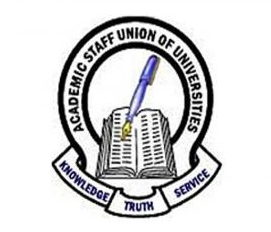In a country where a staggering N2.6 trillion was openly stolen in the name of fuel subsidies – including billions of naira paid to non existing companies – the statement from the Minister of Finance, Dr. Ngozi Okonjo-Iweala, that the federal government could not settle the N92 billion earned allowances by university lecturers as stated in a 2009 agreement is not only insensitive, but indicative of the mindset of government towards education and educators in Nigeria.
If President Goodluck Jonathan orders a genuine crackdown on the 400,000 barrels of crude oil being stolen daily for just one week, the recovered income would be more than sufficient to settle the lecturers’ demands and return them to whatever is left of the teaching and learning process in Nigerian universities.
And as for Nigerian universities, it would be difficult for the uninitiated to appreciate the level of decay and fallen standards without a reflective look at what Nigerian universities used to be like.
Personally, I have received a number of shockers: As a primary school pupil, taking dictations in class was routine; teachers didn’t have to repeat themselves too many times and only spelt out words pupils were not familiar with. Some 20 years later as a doctoral student in one of Nigeria’s ‘top’ universities, I was dumfounded to find professors dictating notes to the class – and being told they were dictating too fast!
I wish it was fiction, but it really happened. And because not much has changed since then, I suspect those professors are still there, dictating worthless notes to aspiring PhDs. Perhaps I should not have been so alarmed; a few years earlier while pursuing a master’s degree, all but one lecturer dictated notes to the class or gave us antiquated notes to photocopy.
Although this happened a while ago, it would not be surprising to find the same lecturers dictating the same old notes to new students. Or that some students in my class with whom I took those tedious notes are now themselves lecturers and professors repeating watered down versions of the same notes to students who, not surprisingly, would rather be anywhere else but in class.
Trying to appreciate the collapse of our educational system, I look back at the schools I attended and the fine, well-trained and dedicated teachers we had. Not only was education free, all books were also provided free. Reading was a worthy and admirable pastime and I remember buying my very first book by myself at just seven. Today, asking university students to buy or read any kind of book would be seen as punitive.
In retrospect, the quality and variety of teachers in our secondary schools was astonishing. Nigeria had English teachers from England and Ghana; Biology and Mathematics teachers from the Philippines; Literature from as many countries as one cared to count and religious subjects by missionaries and real clerics. Nigerian teachers loved their jobs because they chose to be teachers. As preparation for GCE, candidates were taught how to write and answer questions in examination conditions and sitting for WAEC at fourteen or fifteen was not unusual – even in public schools.
While waiting to secure admission to a university, I recall spending time reading a wide variety of works and authors. There were no computer games, Internet, or cable TV, so I discovered writers like James A. Michener when I read The Source. The interregnum enabled me to find John Steinbeck, Leon Uris, Irwin Shaw and James Clavell. Devouring William L. Shirer’s 1,600 page book The Rise and Fall of the Third Reich was routine.
University offered another opportunity to interact with and learn from lecturers from every part of the world, including Brazil, Jamaica, Britain, France, USA, Pakistan, Ghana, India, etc, in addition to some excellent Nigerian teachers. To enable students adapt to university life, they were special instructors who taught Study Skills – specifically how to order classes, tutorials, presentations and how to use the library. Again, this was in Nigeria, and yes, in a government owned university.
Even students in technical fields participated in liberal studies and learned things as abstract as numismatics, carbon 14 and lexicostatistics. They read the works of Lombroso, Chaucer, Gramsci, Tocqueville, Bentham, Mills, Nietzsche, Marcuse, Ibn Khaldun, Hitti and Pareto. They consumed Ousmane Sembene’s prose and memorized poetry from Soyinka’s edition of Poems of Black Africa.
It was with a sense of pride that students studied African resistance from Menelik II, the Maji-Maji Rebellion to the Mau-Mau Movement. Heated discussions in class saw Europe built and Africa dismembered. Studies learned about oral African literature and European poetry. Bismarck, Stalin, Roosevelt, Hitler, Churchill, Haile Selassie, Omar Mukhtar, Nyerere and Nkrumah came alive in class. Undoubtedly, students from Nigerian universities were highly regarded.
With this history, it is clear that even if all of ASUU’s demands are met, it would a long while before Nigerian universities return to their glory days. In the meantime, our public universities will continue to churn what, to be frank, amounts to little more than illiterate graduates.

